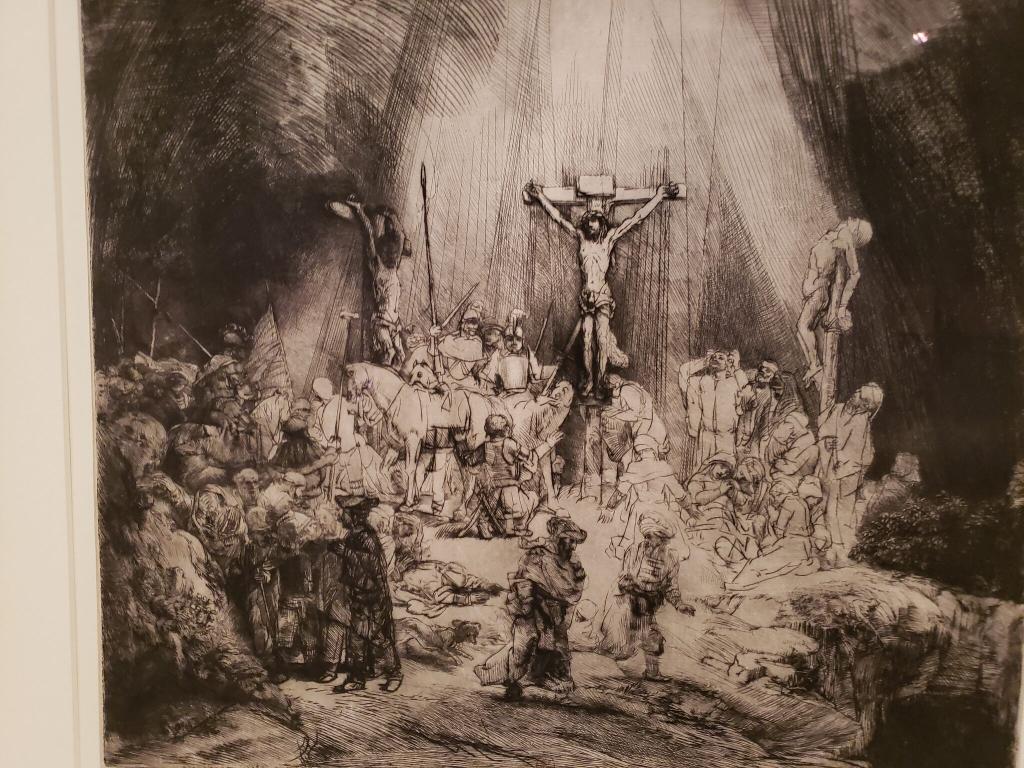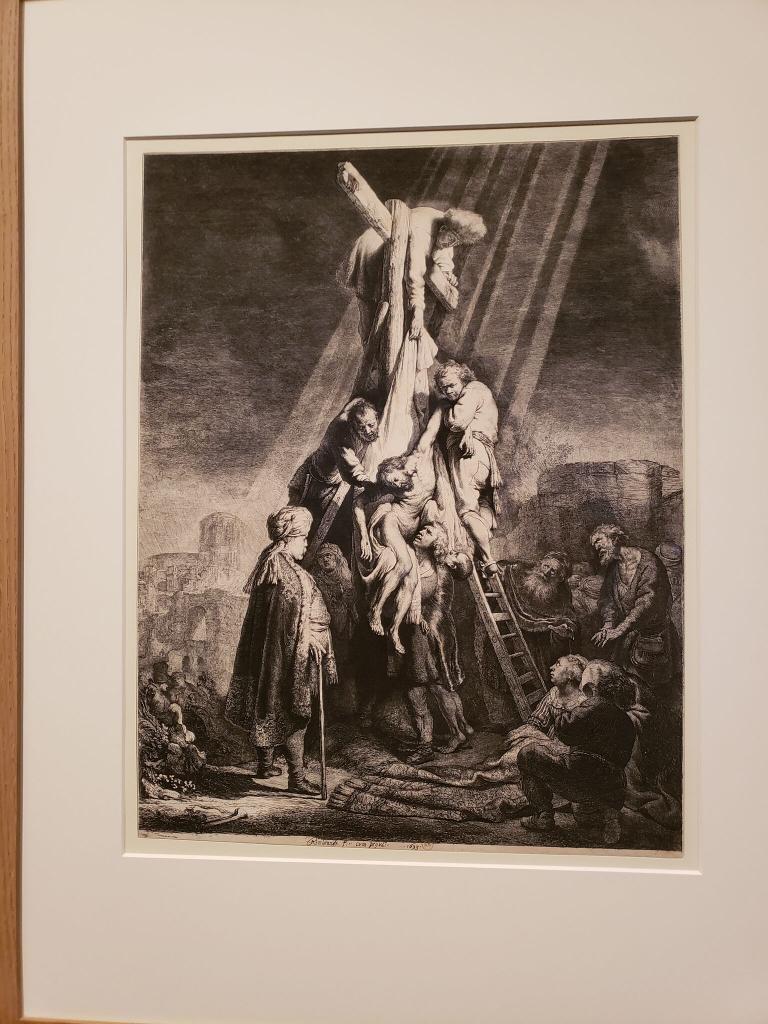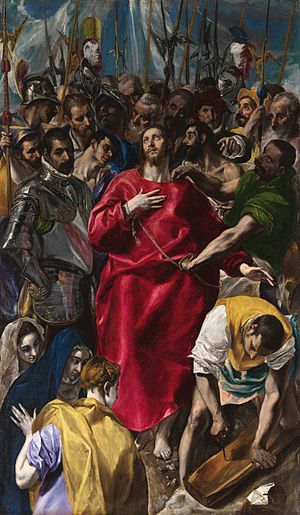Most commissioned art in Europe, from the Middle Ages until modernity, was either portraits or Biblical scenes, both done on commission so the starving could survive. Rembrandt, it appears, did alright with his commissions, unlike other Dutch masters such as Vermeer. Here are various of his sketches of the crucifixion, including the aftermath…
This last sketch may have been the prompt for El Greco’s very famous painting of ‘El Espoilio’ the taking of Christ’s robe just prior to the crucifixion which in turn inspired a great poem by Birney…
The carpenter is intent on the pressure of his hand
on the awl and the trick of pinpointing his strength
through the awl to the wood which is tough
He has no effort to spare for despoilings
or to worry if he’ll be cut in on the dice
His skill is vital to the scene and the safety of the state
Anyone can perform the indignities It’s his hard arms
and craft that hold the eyes of the convict’s women
There is the problem of getting the holes exact
(in the middle of this elbowing crowd)
and deep enough to hold the spikes
after they’ve sunk through those bared feet
and inadequate wrists he knows are waiting behind him
He doesn’t sense perhaps that one of the hands
is held in a curious gesture over him —
giving or asking forgiveness? —
17but he’d scarcely take time to be puzzled by poses
Criminals come in all sorts as anyone knows who makes crosses
are as mad or sane as those who decide on their killings
Our one at least has been quiet so far
though they say he talked himself into this trouble
a carpenter’s son who got notions of preaching
Well heres a carpenter’s son who’ll have carpenter sons
God willing and build what’s wanted temples or tables
mangers or crosses and shape them decently
working alone in that firm and profound abstraction
which blots out the bawling of rag-snatchers
To construct with hands knee-weight braced thigh
keeps the back turned from death
But it’s too late now for the other carpenter’s boy
to return to this peace before the nails are hammered
— Earle Birney




















